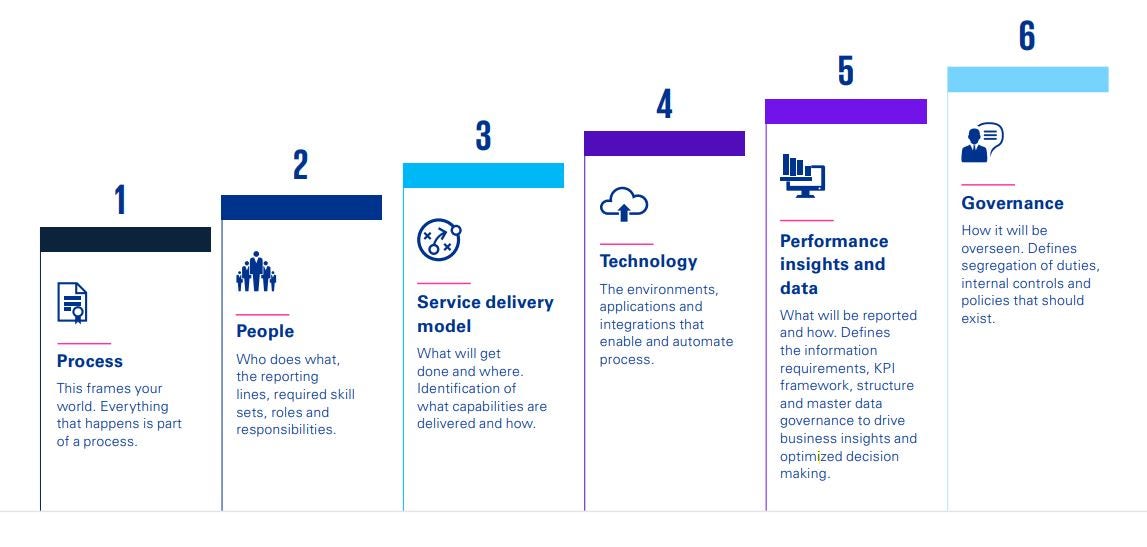Although a target operating model might be regarded as a pure process optimization tool used by business analysts, we propose that Management should engage with the functional transformation at a strategic level. By implementing a strategic target operating model one can achieve organizational business optimization and fulfill stakeholder expectations.
The initial stages of your transformational journey can have the most profound impact on your ultimate outcome. It's during this stage that the big decisions are made and the future state is determined. That's where we can help empower you to move to a 'best in class' vision.
The Powered Enterprise transformation approach guides you through your end-to-end transformational journey. At the heart of it, the operating model shapes your business transformation and maps out the optimum way you can operate in the future and the potential consequences of the decisions made along the way.




